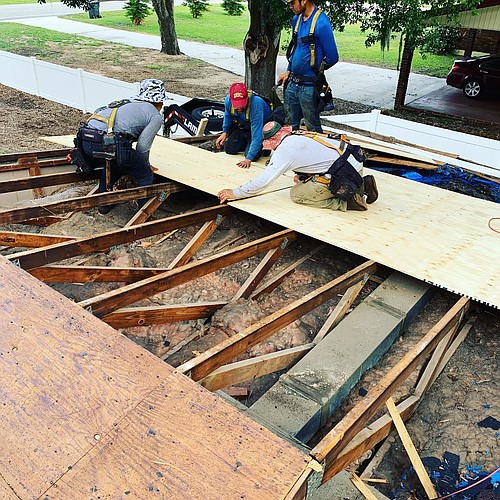- December 27, 2024
-
-
Loading

Loading

TALLAHASSEE— Florida’s Secretary of the Department of Business and Professional Regulation has asked a federal judge for a seven-day extension to reply to a lawsuit by a Brandon roofing company that claims the Legislature violated its First Amendment rights when it passed a measure aimed at stopping unscrupulous contractors.
Julie Brown, sued by Gale Force Roofing & Restoration in her role as head of DBR, cited the sudden illness of one of her attorneys as the reason to request the delay. The response was due Aug. 12.
In the two-page request, attorneys for Brown write that a lawyer preparing the response, Edward Wegner, “was admitted to the hospital because he has lost his vision.”
The filing says that the hope and expectation is that the “loss of vision is temporary.”
“Regardless, with the extension, the undersigned anticipates completing and filing the answers on or before August 20, 2021.”
Jeremy Bailie, the attorney for Gale Force, said in an email Wednesday afternoon that all parties involved have agreed on the extension. “No one is contesting.”
The legal fight is over a bill, HB 7065, that the Legislature passed in the most recent session and that Gov. Ron DeSantis signed into law June 11.
It was drafted to curtail the use of an insurance agreement called an assignment of benefits. But Gale Force, and other contractors that have since joined the lawsuit, argue that law actually hurts citizens who may be stuck with damaged homes.
The lawsuit claims the law forbids contractors from advertising to homeowners and encouraging them to contact a contractor to check their roof for damage and then filing an insurance claim when necessary.
This, the Gale Force says in court papers, is an “unconscionable attack on the right for homeowners to receive truthful information about how to repair the damage to their property.”
Gale Force asked for a preliminary injunction, which was granted July 11.
Penalties for violators include a $10,000 fine per incident and the possibility of a license suspension. Gale Force argues that if a contractor sends an advertising mailer to 100 homes in an area devastated by a hurricane, the contractor could face a $1 million fine and lose its license.
“The act is a frontal assault on the First Amendment and an extraordinary intervention by the government that would be unthinkable in any other context,” the company argues.
State officials, however, contend dishonest contractors use the assignment of benefits as a way to collect money for work that leaves the owner owing money if the work is unnecessary or is left undone.
In her response to the request for the injunction, Brown argued the law “plainly survives as a measure and narrowly tailored tool to protect consumers” and that the law is a “modest, and constitutional, regulation of contractors.”